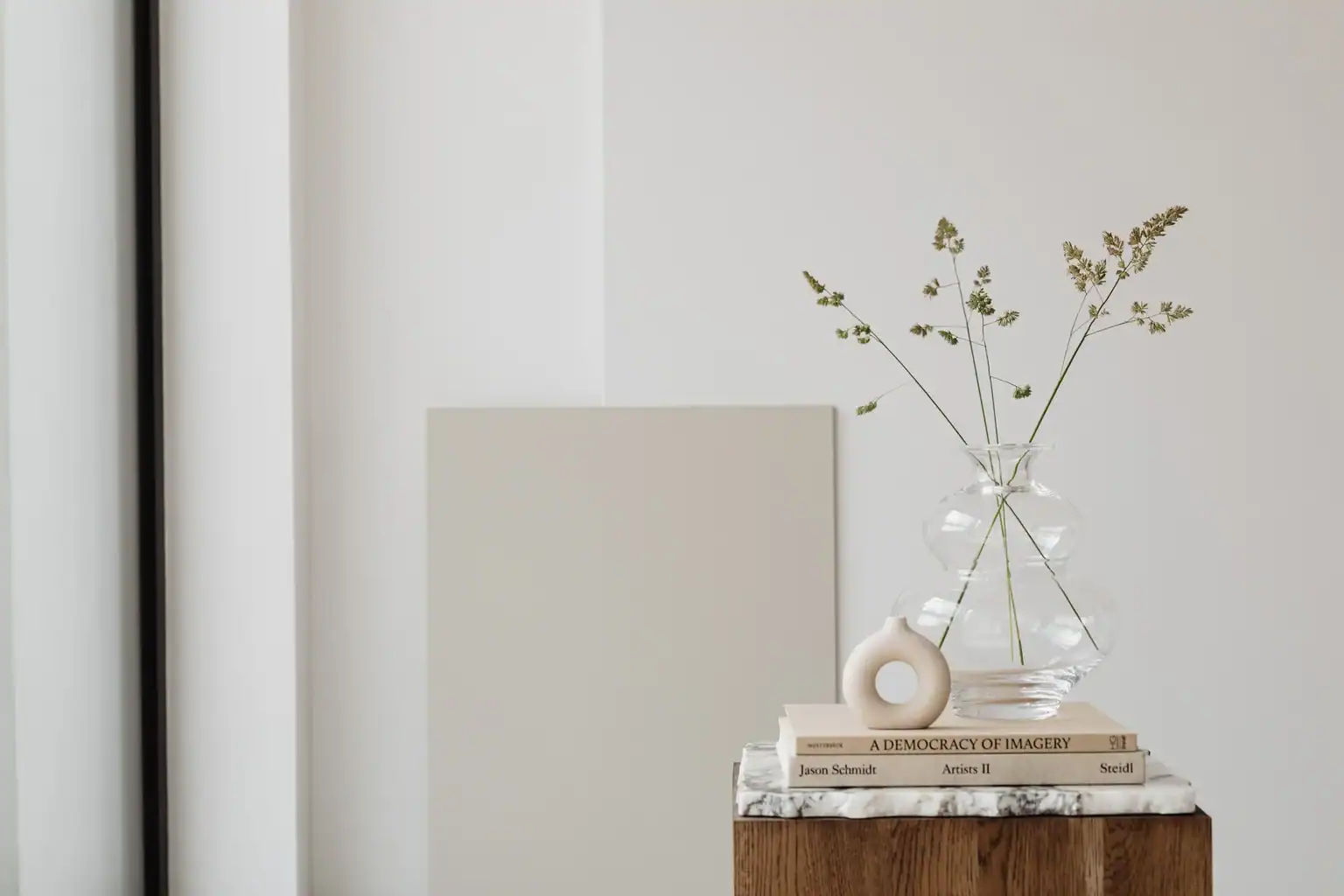Hi! I’m Paulien and I’m so happy you are here! In this blog we are going to talk about why you long for passion as a fearful avoidant. The better you understand yourself and why you want the things you want, the easier it’s going to be to recognize the patterns and to release them. Everything you want, you want for a reason and that reason is total fine! So it’s not wrong to want passion in your relationship. It’s just that a lot of fearful avoidants want that passion from a wound and therefore it will never be fully fulfilled. Or it will cause you to be in unhealthy and toxic relationships. So let’s break this down a little bit.
For those who don’t know, if you are new here and you haven’t heard it yet: 13 years ago I met an amazing guy. And I fell deep into the what I call ‘crash state’ of the fearful avoidant attachment style. I had intense doubts about my relationship. And all of them focused on whether I was in love enough. Whether I felt enough butterflies and sparks and I really longed for passion.
Your business’s next breakthrough is just one coaching session away
– lilou
I wanted passion so much and I really genuinely thought that if I would feel that if I would feel all these intense emotions: then I would be happy. Looking back, I know that what I was looking for was to feel safe. And it sounds so weird because passion is quite fiery and the way fearful avoidants experience it can be quite dramatic also. So why would that be safe? That’s weird, right? But it was one of the things that really tripped me up in allowing a healthy relationship, a healthy and happy relationship. I thought: we need passion. And when I realized that not everybody wants that, I was like: I want it and I need it. So this relationship isn’t right and I need to find somebody else. I didn’t.
And 13 years later, I’m very happy but I had to learn and heal a few things.
So the reason that fearful avoidants long for passion has a lot to do with the emotional intensity. The idea fearful avoidants have of what a healthy and happy relationship looks like has a lot to do with intense emotions and intense feelings. So intense attraction, intense passion, intense butterflies and wanting to be with that person all the time. And when that’s not there (which is a lot of the times in a normal healthy relationship) that can cause you to doubt the relationship because you start to doubt your feelings. But what is actually happening is that the absence of the emotional intensity is unfamiliar to your system. It is unfamiliar to your fear brain and therefore threatening.
So where this comes from is that the fearful avoidant attachment style develops because of a sense of emotional intensity in childhood. So that could mean that one of your parents was a fearful avoidant and there was just a lot of emotional roller coaster going on when you were younger. That person could for example get very angry and could be very loving, so very hot and cold. It could also be that there was just a lot of chaos at home. Maybe your parents had a lot of arguments or your brother or sister. There was just a lot of fighting and a lot of emotional volatility. It was not a very stable home.
And with a stable I mean that your parents were loving and patient and calm in a consistent manner, so you knew what to expect. And you weren’t walking on eggshells trying to not piss anybody off because they could get very angry. When you have had a sense of having to walk on eggshells or a lot of tension at home or maybe a parent that was hypercritical it can create this sense of emotional intensity because you just are so focused on having to do it right. And when you do it right you get this high of approval and then when you do it wrong you feel really bad about yourself and all of that is very intense.
So you grew up with a fear system that is actually attuned to this very intense emotional roller coaster and in a way your body gets addicted to that. It’s really an addiction to the highs and lows. And what you see is that people that have the fearful avoidant attachment style can enter toxic unhealthy relationships because there is so much emotional intensity and that in a way feels familiar. And therefore feels like home. You can definitely confuse that with love because you think that this is what it’s supposed to feel like when everything is right and it is so good. So you think that all we have to do is work on the toxic parts and when those are gone then we’ll be fine. But the thing is, even if those toxic parts of the relationship would just vanish: the healing process would start. That’s when the struggle would start because your fear system is not accustomed or attuned to safety and stability.
You would get into a whole different dynamic. And that dynamic is what you see when you enter into a healthy relationship with somebody that is actually probably securely attached and is just there for you. Committed, loyal, but also safe and stable. And because you are so addicted to that emotional volatility and intensity to those highs and lows of peaks and valleys: you will have a very hard time relaxing in a very healthy and stable relationship and accepting that as love. Your fear brain will crave the emotional intensity and you translate that as passion.
So actually a lot of the movies we see, portray signs of the fearful avoidant attachment style. And that’s not necessarily the healthiest. There are a lot of movies that just do not portray healthy relationships at all. But you translate that craving, that emotional intensity to passion.
You think you want passion, but what you want is actually that emotional volatility because passion can absolutely exist in a stable and loving relationship. It will just look differently and in a way that scares the shit out of the fearful avoidant. Because true passion, lifelong healthy passion, comes from deep intimacy. And intimacy is something the fearful avoidants want so badly and is scared of so much. You seek it in the highs and lows, in getting approval and getting rejected, in things going really well and then things crashing and burning.
And when you don’t have that in your relationship you might actually find it or seek it in different parts of your life, which is very interesting. If you notice the pattern in your relationship, try to see where you copy paste that pattern and try to emulate that feeling of intense highs and intense lows. So this is a very important part to heal the craving, the emotional intensity, the craving of the emotional rollercoaster.
And it really was a grieving process for me. I really grieved that feeling of getting approval and then also grieved the feeling of getting rejected because you need the low, you need the getting rejected, you need the crashing and burning in order to create the emotional roller coaster, to make the getting approval and things going really well feel so intensely good. Do you understand what I’m saying? I hope this is clear.
I also needed to grieve the getting rejected and the crashing and burning, even though I was so sick of it and it took so much energy out of me. I created it. And I had to take responsibility for that, that I created that because my body just craved it. And my body was addicted to it, to that cocktail of hormones that gets released when you get into that emotional roller coaster.
What I’ve learned now that I’ve healed this fearful avoidant attachment style, is that the passion you feel when you’re in a stable and loving relationship is much more rich, it’s so much more fulfilling. So the highs that I had from approval and from the times that went good in my toxic relationships don’t compare to what I feel now on a pretty consistent basis.
In order to get there, you really need to acknowledge the emotional roller coaster, acknowledge that your version of passion is not a very healthy one, and grieve that part of you that wants that so badly because it feels familiar. You can absolutely heal this.
Tapping is such a powerful tool to release these cravings, these needs, these things that you feel like you have to have because otherwise you just won’t survive or you won’t like life. Tapping is amazing for that. We use it in my program Healed & Happy too. It will give back time and energy, it will set you free to focus on other things, to relax, to enjoy, to savor, to get nourishment.

It will change your life. Just releasing this unhealthy pattern of longing for passion in an unhealthy way. But I just want you to know that the longing for that passion is not wrong. It’s not wrong that you do that. Don’t make yourself wrong for it. It’s very logical where that comes from.
It feels familiar to you and it’s really trauma based. So it’s not bad at all. It’s just something you can heal. And that will give you so much if you do. In Healed & Happy we go to the roots of this attachment style and we don’t only recognize the patterns, you will get to know yourself so much better and know why you do the things you do, think the things you think and feel the things you feel. It will also be released in your body / your energy system; because that’s where it gets stored. You can recognize the patterns all day, every day and still won’t be able to break through them because this is so visceral. It’s stored in your body. So that’s where tapping comes in, where it’s an amazing tool.
Let me know if this blog was valuable to you and if this was kind of an eye opener. And whether you already knew that you saw passion in this way or why you longed for passion.
Just tell me all these things in the comments
I love hearing from you!
Much love,
Paulien
This is not to diagnose. I’m not a psychologist and it’s not black and white. You can definitely recognise so much of the fearful avoidant attachment style and maybe you’re even dominantly securely attached. So don’t see this as this is a strong diagnosis. I am just here to tell you all about it and really help you understand yourself a little bit better.
Share






